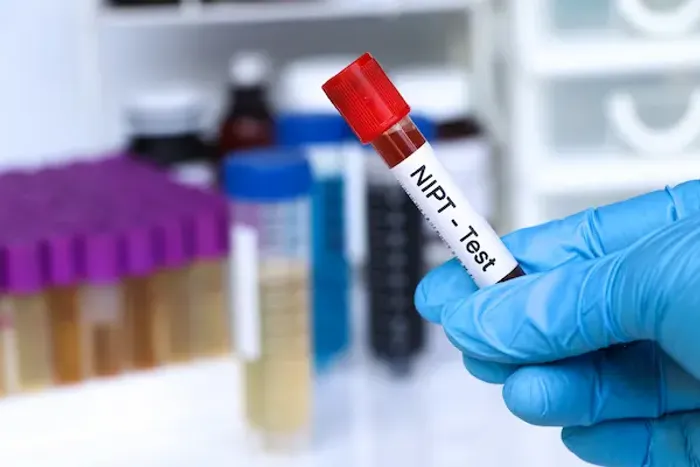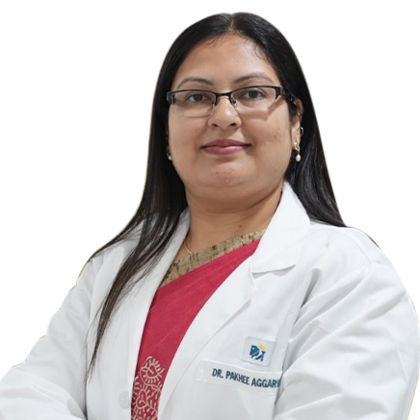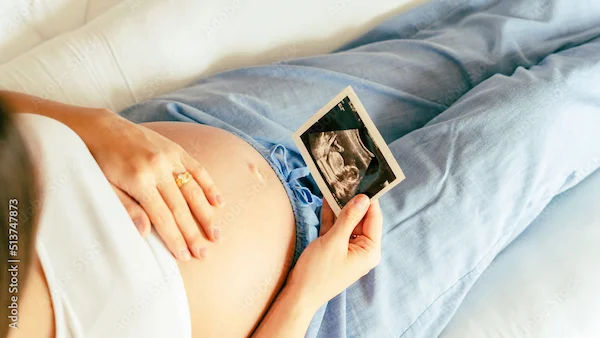Understanding NIPT Test Results and Accuracy
Know about nipt test, what is it, screening criteria, accuracy and understanding the results. Learn about how to have healthy pregnancy and more.

Written by Dr. Dhankecha Mayank Dineshbhai
Reviewed by Dr. Rohinipriyanka Pondugula MBBS
Last updated on 13th Jan, 2026

Pregnancy is beautiful, but it can also bring some anxiety, especially when it comes to ensuring the health of your baby. One of the tests that can provide reassurance is the Non-Invasive Prenatal Test (NIPT). If you’re considering or have already taken this test, you might have questions about how to interpret the results and how accurate they are. Let’s break it down in simple terms to help you understand better.
What is the NIPT Test?
The Non-Invasive Prenatal Test (NIPT) is a simple blood test performed during pregnancy to screen for certain genetic conditions in the baby. Unlike invasive tests like amniocentesis, NIPT is completely safe and does not pose any risk to the baby. It analyses tiny fragments of the baby’s DNA that circulate in the mother’s blood to detect chromosomal abnormalities.
Conditions Screened by NIPT
It includes:
- Down syndrome (Trisomy 21)
- Edwards syndrome (Trisomy 18)
- Patau syndrome (Trisomy 13)
- Sex chromosome abnormalities (e.g., Turner syndrome, Klinefelter syndrome)
- Some tests can also determine the baby’s gender if parents wish to know.
Consult a Gynaecologist for Personalised Advice
How Accurate is the NIPT?
NIPT is highly accurate, but it’s important to remember that it is a screening test, not a diagnostic test. This means it can estimate the likelihood of a condition but cannot confirm it with 100% certainty.
Accuracy Rates:
- Down syndrome (Trisomy 21): ~99% accurate
- Edwards syndrome (Trisomy 18): ~97% accurate
- Patau syndrome (Trisomy 13): ~92% accurate
- Sex chromosome abnormalities: Slightly lower accuracy (~90%)
Factors That Can Affect Accuracy:
- Gestational Age: NIPT is most reliable after 10 weeks of pregnancy.
- Fetal DNA Fraction: If there’s not enough fetal DNA in the mother’s blood, the test may be inconclusive.
- Maternal Weight: Higher maternal weight can sometimes reduce accuracy.
- Twin Pregnancies: Accuracy may vary in twin pregnancies.
Understanding Your NIPT Results
NIPT results are usually reported as either "low risk" (negative) or "high risk" (positive).
1. Low-Risk Result
- This means the test did not detect any of the screened chromosomal conditions.
- While highly reassuring, no test is 100% accurate. Routine ultrasounds and follow-ups are still recommended.
2. High-Risk Result
This means there is an increased chance of a chromosomal condition.
- Do not panic—this does not mean the baby has the condition.
- Your doctor will likely recommend a confirmatory diagnostic test, such as amniocentesis or CVS (Chorionic Villus
Sampling), for a definitive diagnosis.
3. Inconclusive/No Result
- Sometimes, the test may not provide a clear result due to low fetal DNA or technical issues.
- Your doctor may suggest a repeat test or an alternative screening method.
What to Do After Receiving NIPT Results?
If Results Are Low Risk:
- Continue with regular prenatal care, including ultrasounds.
- Stay informed but avoid unnecessary stress.
If Results Are High Risk:
- Consult a genetic counsellor or specialist to discuss next steps.
- Consider diagnostic testing (amniocentesis/CVS) for confirmation.
- Remember, a high-risk NIPT result does not always mean the baby has a condition.
If Results Are Inconclusive:
- Your doctor may recommend a repeat NIPT or another screening method.
- Stay patient—sometimes, a second test provides clearer results.
Tips for a Healthy Pregnancy
While NIPT provides valuable insights, maintaining a healthy pregnancy is equally important:
- Eat a balanced diet (rich in folic acid, iron, and calcium).
- Stay active with doctor-approved exercises like walking or prenatal yoga.
- Avoid alcohol, smoking, and excessive caffeine.
- Attend all prenatal check-ups and follow your doctor’s advice.
- Manage stress through relaxation techniques like meditation.
When Should You Consider NIPT?
NIPT is optional but may be recommended if:
- You are 35 years or older (higher risk of chromosomal abnormalities).
- You have a family history of genetic disorders.
- The previous pregnancy had a chromosomal condition.
- You want early and accurate screening without invasive procedures.
Final Thoughts
The NIPT test is a powerful tool that provides early and safe insights into your baby’s health. While it’s highly accurate, always discuss your results with a doctor to understand the full picture. Remember, no matter the outcome, you’re not alone medical professionals and support networks are there to guide you every step of the way.
Consult a Gynaecologist for Personalised Advice
Consult a Gynaecologist for Personalised Advice

Dr. Sreeparna Roy
Obstetrician and Gynaecologist
8 Years • MBBS , MS (OBSTETRICS & GYNAECOLOGY), Fellowship in Infertility, Endoscopy & Ultrasonography), Fellowship in Laparoscopy & Hysteroscopy,DRM
Kolkata
Dr Utsa Basu Clinic, Kolkata

Dr. Revathi S Rajan
Obstetrician and Gynaecologist
24 Years • MBBS, DGO, DNB.FFMM
Bengaluru
Apollo Clinic, JP nagar, Bengaluru
Dr. Navin Srinivasan
Gynaecological Oncologist
9 Years • MBBS, MS DNB(OBS-GYNAE), MCH (GYNAE ONCOLOGY)
Bengaluru
Apollo Clinic Mahadevapura, Bengaluru

Dr. Pakhee Aggarwal
Gynaecological Oncology & Robotic Surgery
18 Years • MBBS, MS, MRCOG (UK), FICOG, MIPHA, UICC Robotic Gynae-Oncology Fellowship (Canada), Commonwealth Gynae-Oncology Fellowship (Oxford, UK)
Delhi
Apollo Hospitals Indraprastha, Delhi
(25+ Patients)

Dr. Prashant Chandra Das
Surgical Oncologist
15 Years • MBBS (MKCG Medical college) MCh (Surgical Oncology, Kidwai memorial institute of Oncology, Bangalore) MS (General Surgery, BHU Varanasi) Fellowship in Minimal Access Surgery ( FMAS). ESSO Course On Minimally Invasive Esophagectomy & Gastrectomy (UMC, Utrecht, Netherlands). Trained in Robotic and Laparoscopic Cancer Surgery.
Bhubaneswar
Apollo Hospitals Old Sainik School Road, Bhubaneswar
(25+ Patients)
Consult a Gynaecologist for Personalised Advice

Dr. Sreeparna Roy
Obstetrician and Gynaecologist
8 Years • MBBS , MS (OBSTETRICS & GYNAECOLOGY), Fellowship in Infertility, Endoscopy & Ultrasonography), Fellowship in Laparoscopy & Hysteroscopy,DRM
Kolkata
Dr Utsa Basu Clinic, Kolkata

Dr. Revathi S Rajan
Obstetrician and Gynaecologist
24 Years • MBBS, DGO, DNB.FFMM
Bengaluru
Apollo Clinic, JP nagar, Bengaluru
Dr. Navin Srinivasan
Gynaecological Oncologist
9 Years • MBBS, MS DNB(OBS-GYNAE), MCH (GYNAE ONCOLOGY)
Bengaluru
Apollo Clinic Mahadevapura, Bengaluru

Dr. Pakhee Aggarwal
Gynaecological Oncology & Robotic Surgery
18 Years • MBBS, MS, MRCOG (UK), FICOG, MIPHA, UICC Robotic Gynae-Oncology Fellowship (Canada), Commonwealth Gynae-Oncology Fellowship (Oxford, UK)
Delhi
Apollo Hospitals Indraprastha, Delhi
(25+ Patients)

Dr. Prashant Chandra Das
Surgical Oncologist
15 Years • MBBS (MKCG Medical college) MCh (Surgical Oncology, Kidwai memorial institute of Oncology, Bangalore) MS (General Surgery, BHU Varanasi) Fellowship in Minimal Access Surgery ( FMAS). ESSO Course On Minimally Invasive Esophagectomy & Gastrectomy (UMC, Utrecht, Netherlands). Trained in Robotic and Laparoscopic Cancer Surgery.
Bhubaneswar
Apollo Hospitals Old Sainik School Road, Bhubaneswar
(25+ Patients)




